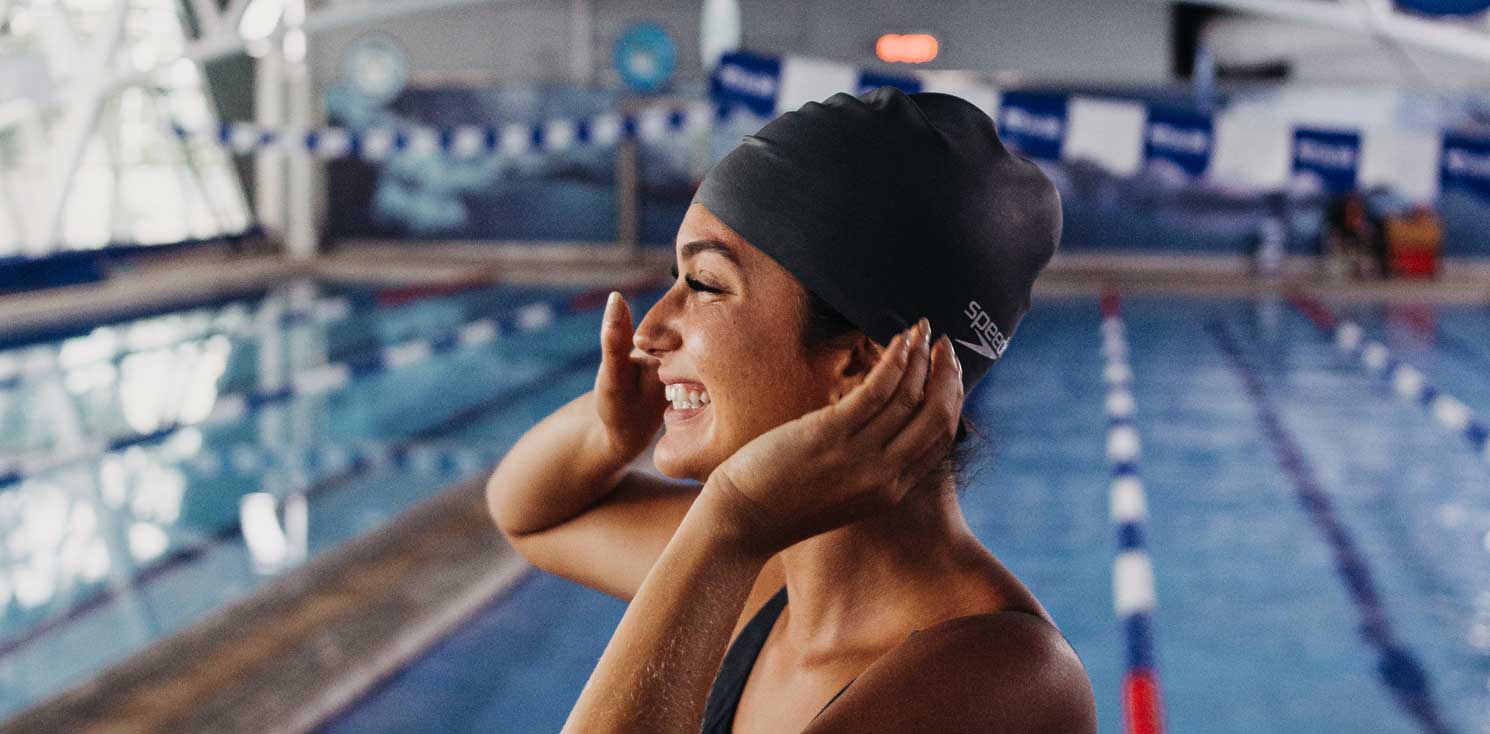Keeping your hair dry and free from damage when swimming is important. And the art of doing this stretches further than just putting a swimming cap over it. Developing the right routine before (and after) a swim is crucial to maintaining the natural shine and moisture of your hair.

How To Keep Hair Dry And Healthy While Swimming
In this short guide, we will give you some of the best tips, from experts, on keeping your hair healthy and dry in every swim. Let’s take a closer look…
Prevent Chlorine Water From Damaging Your Hair
This step is about keeping your hair healthy rather than dry, but bear with us here. Hair absorbs water. It has a maximum limit to how much water it can absorb – meaning that if you rinse your hair with clean, chlorine-free water before you get in a pool, you will reduce and prevent unnecessary chemicals from damaging your hair from the inside out.
Wear A Properly Fitted Silicone Cap
Unlike rubber swimming caps, silicone caps offer a much tighter fit/seal, meaning they are better at keeping your hair dry. To increase the waterproof effect and avoid zero seeping, many people often wear a shower cap underneath their swimming caps too, providing an effective two-layer barrier. Just make sure you don’t make it too uncomfortable by wearing them extra tight.
Using Natural Oils To Maintain Hair Moisture
Pool water can dry out and damage your hair in no time. However, before entering a pool, it’s a good idea to apply a little coconut oil to your hair to lock in natural moisture. Not only this, but coconut oil will create a repellent to water. Couple this with a swimming cap and you are creating a healthy but watertight barrier for those locks!
Use A Leave-in Conditioner To Mitigate Damage
If you apply a leave-in conditioner before your swims, it will significantly reduce damage caused by pool chemicals. This won’t leave your hair dry, but it is the healthiest process for your hair while you swim. A product that should stay away from your hair pre-swim is hairspray, gels or any styling products, as these can sometimes react with the chlorine and have negative effects on your hair quality, causing dryness and split ends.
We hope these tips are useful when it comes to protecting your hair in the swimming pool. Our personal advice is to not focus on keeping your hair ‘dry’, but to keep it healthy. This means keeping it dry from the pool water, but ensuring it receives the right pre-swim and post-swim treatment with clean water and conditioners.

